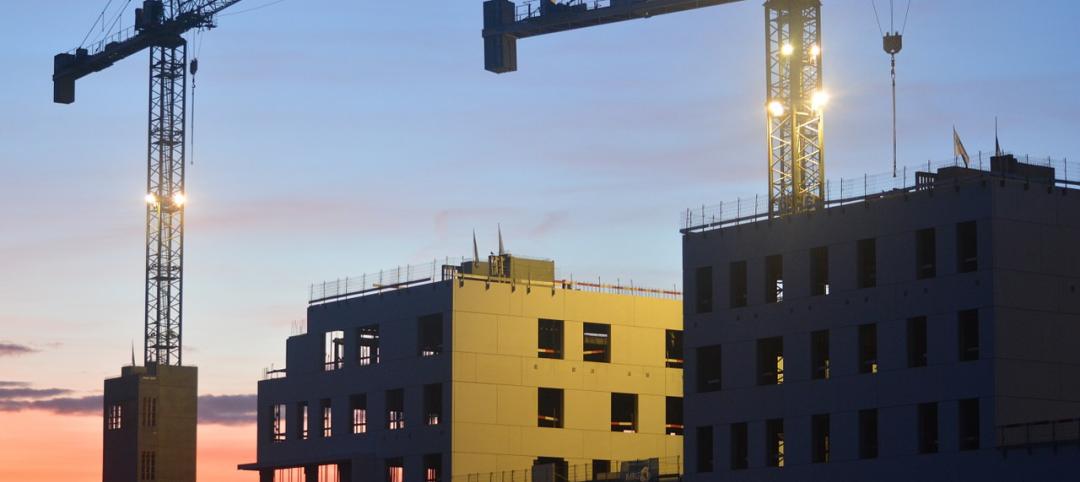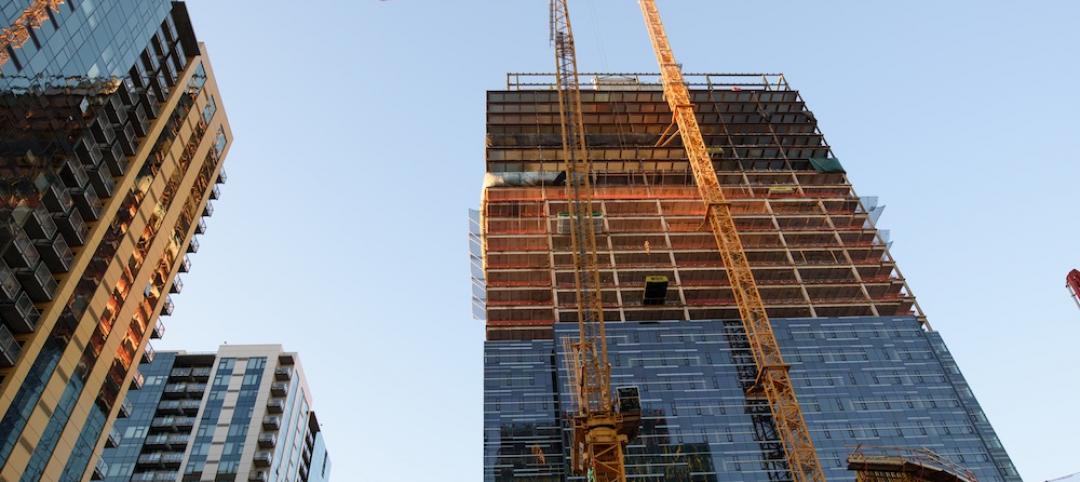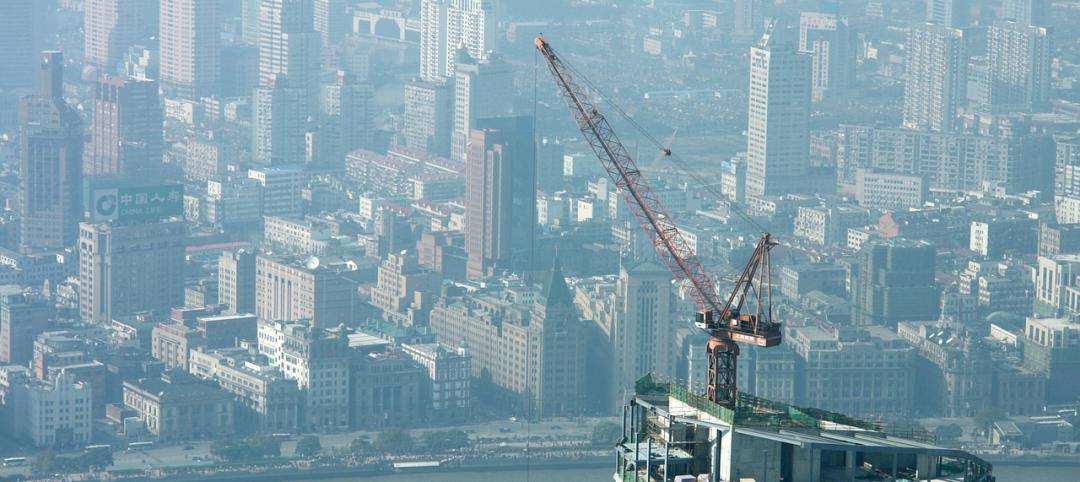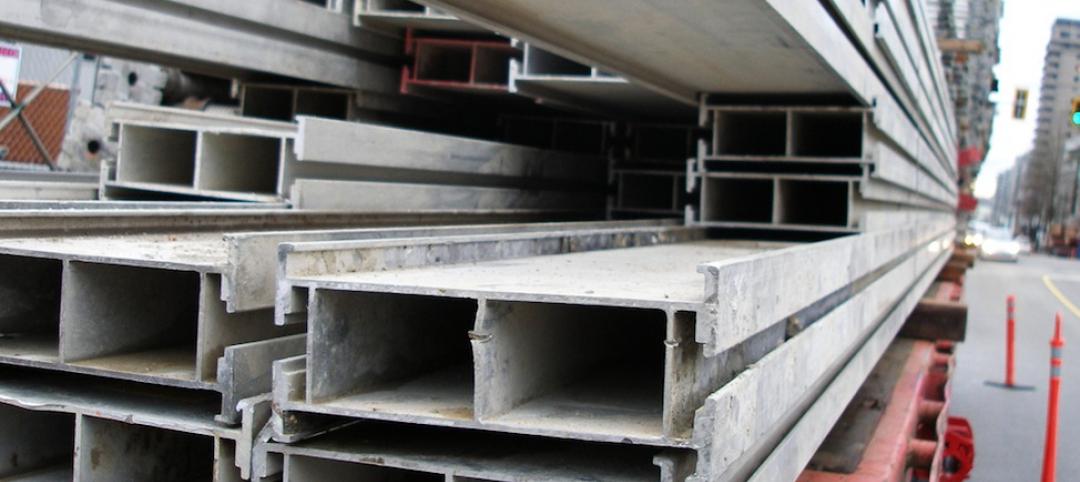1. WATG designs solution for isolating without sacrificing social connectivity (BD+C)
"But in an effort to make the transition to isolation easier, without the need to sacrifice human interaction, WATG has created Oriel, a new option that allows any room to become a self-isolation zone while maintaining a social component."
2. State lawmakers encouraging transition to heat pumps for building heating (BD+C)
"Lawmakers and regulators in an increasing number of states, including California and New York, are changing policies to promote the use of electricity instead of fossil fuels to power building heating and hot water systems."
3. National survey reveals pandemic's impact on college students' mental health, remote learning, families' income and more (Core Spaces)
"Of 2,500 student respondents, 75% feel more anxious or stressed, 57% said they lost their summer jobs and 90% want to return to campus in the fall."
4. A look back at design standard shifts: ADA vs. COVID-19 (Burns & McDonnel)
"If the ADA is any guidance, it may be years before nationwide standards are published and adopted."
5. Clothing stores, not bars and restaurants, took the biggest sales hit from the Coronavirus (MarketWatch)
“It turns out that bars and restaurants did not take the biggest hit from the coronavirus pandemic — it was clothing stores that suffered the biggest revenue losses over the past three months, with sales slashed by 66.6%. By contrast, sales at restaurants and bars were down “only” 40%."
6. Hotels see leisure travel return, but it's still going to be a tough year (Bisnow)
"Leisure travelers are slowly returning to the hotel market even though the lodging industry as a whole faces ongoing financial strain from the coronavirus pandemic and a longer road to full recovery, industry experts say."
7. Will contactless technology be a priority for post-COVID-19 workplace? (Mortgage Professional America)
"The workplace is being reimagined to include more square footage per person, plexiglass dividers, and hybrid work from home and office structures and schedules, in order to conform to new health and safety regulations. But what role will technology play, as companies look to reduce contamination on high touch surfaces?”
8. Once booming San Francisco apartment market goes in reverse (WSJ)
“Rents in San Francisco, the most expensive apartment market in the U.S., are tumbling as the city’s vaunted tech sector sheds jobs and more tenants leave the city.”

Related Stories
Market Data | Feb 10, 2016
Nonresidential building starts and spending should see solid gains in 2016: Gilbane report
But finding skilled workers continues to be a problem and could inflate a project's costs.
Market Data | Feb 9, 2016
Cushman & Wakefield is bullish on U.S. economy and its property markets
Sees positive signs for construction and investment growth in warehouses, offices, and retail
Market Data | Feb 5, 2016
CMD/Oxford forecast: Nonresidential building growth will recover modestly in 2016
Increased government spending on infrastructure projects should help.
Market Data | Feb 4, 2016
Mortenson: Nonresidential construction costs expected to increase in six major metros
The Construction Cost Index, from Mortenson Construction, indicated rises between 3 and 4% on average.
Contractors | Feb 1, 2016
ABC: Tepid GDP growth a sign construction spending may sputter
Though the economy did not have a strong ending to 2015, the data does not suggest that nonresidential construction spending is set to decline.
Data Centers | Jan 28, 2016
Top 10 markets for data center construction
JLL’s latest outlook foresees a maturation in certain metros.
Market Data | Jan 20, 2016
Nonresidential building starts sag in 2015
CDM Research finds only a few positive signs among the leading sectors.
Market Data | Jan 20, 2016
Architecture Billings Index ends year on positive note
While volatility persists, architecture firms reported healthy performance for 2015.
Market Data | Jan 15, 2016
ABC: Construction material prices continue free fall in December
In December, construction material prices fell for the sixth consecutive month. Prices have declined 7.2% since peaking in August 2014.
Market Data | Jan 13, 2016
Morgan Stanley bucks gloom and doom, thinks U.S. economy has legs through 2020
Strong job growth and dwindling consumer debt give rise to hope.















